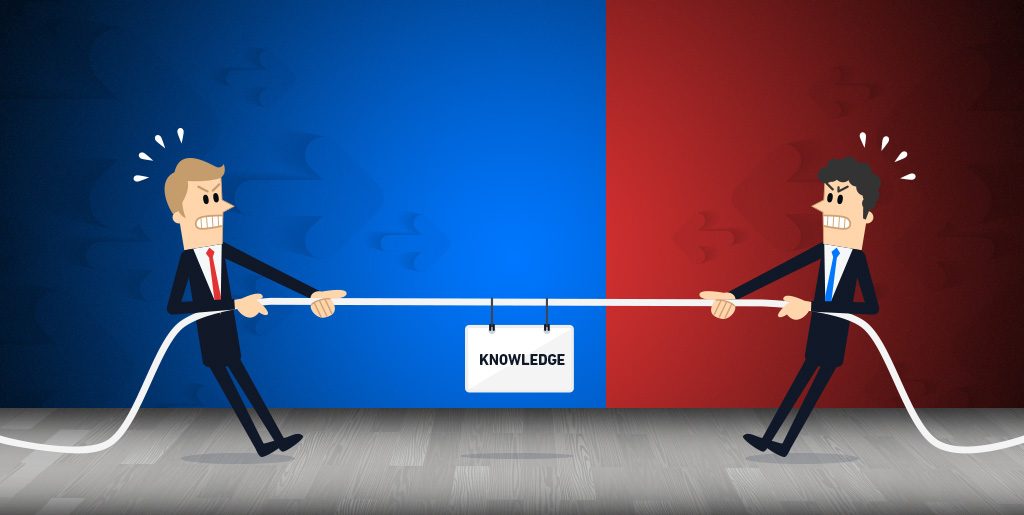1.1 Asymmetric Information
1.0 Pre Sale

Asymmetric Information, or Information Asymmetry, in contract theory and economics is clearly defined where one party in a transaction has more or better information than the other.
Nowhere is this more true than the relationship between a dealership and their customers. Since the invention of the automobile and the separation between auto manufacturers and dealers, the industry has growingly relied on keeping the consumer in the dark to increase their profits. They have used and continue to use their power and control of knowledge to gain the upper hand when negotiating with their clientele. This imbalance created by asymmetric information has been exponentially compounded since consumers have started to use credit to purchase vehicles.
The Automotive Industry in Canada
Your dealership is purposefully withholding information from you to line their own pockets and maximize their profits. In no other industry in Canada, does a consumer have such a huge disadvantage, then in the automotive industry.
The problem stems from the fact that, although the purchase of a vehicle is a huge commitment for most Canadians, there is very little actual regulation. Although vehicle manufacturers sell across the country the exact same vehicles, each province is responsible for regulating practices and standards of dealership. Some provinces don’t even have a regulatory body.
The provinces that do have a regulatory body, are funded by the industry itself. How can we expect them to enforce policy that would negatively impact the vehicle manufacturers and dealerships, when they are relying on income from that very same source?
“Alberta vehicle industry watchdog ousts director following review”
Although manufacturers of new vehicles do advertise an MSRP (manufacturer’s suggested retail price), that’s exactly what it is, A suggestion and nothing more.
The auto industry is unique: When buying a vehicle, new or used, two people who are buying the exact same vehicle (make, model, features…etc) can expect to pay significantly different prices.
Imagine if we allowed other industries to treat us the same way?
Imagine if you went to the grocery store, and you paid 25% more for a gallon of milk than the person directly in front of you? The same exact milk?
Imagine if we just accepted that as reality and never fought back?
How much do you know about your Credit Score?
Do you know what your current credit score is? Do you know what is currently on your credit history? Or most importantly, do you know how to maintain a healthy credit score? This is another example of asymmetric information at work.
When you think of your formative years, all the way through high school and perhaps beyond, when did anybody ever sit you down and take the time to teach you about credit ratings? How to properly budget for life? Or how interest works? I am going to safely assume that the majority of readers would scream “never!”.

The Devil is in the Details
The automotive industry, dealership and lenders are leveraging this imbalance in knowledge through asymmetric information to increase their profits by offering longer credit terms, over leveraging your debt-load and simply put, taking advantage of your ignorance. When you are purchasing a vehicle, the sales associate or finance manager would like you to believe that perhaps paying $20 more per month or bi-weekly isn’t the end of the world to you, or perhaps taking a load with 1-2 percentage points higher is insignificant, but what the average person might not realize that over the life of that loan, which averages around 72 months these days, it can mean the equivalent of paying thousands more for your vehicle and your loan. Thousands of dollars that you could have saved towards a house, a vacation or even paying off that vehicle earlier.
Do not walk into the purchase of your next vehicle blind. The odds are heavily stacked against you, in a rigged system, but there is hope. Do your research and leave nothing to chance. Make sure you understand your rights, make sure you understand what you are signing and most importantly, make sure you understand the true, overall cost of paying $20 more per month on your next vehicle.
Throughout these articles, you are going to get a firm grasp of:
– How your credit works
– If you should buy new or used
– Mistakes to avoid so you don’t over-pay for your vehicle
– How vehicle financing works
– What pressure tactics dealerships use
– And so much more!
Articles we will be covering
1.0 Pre Sale
1.1 Asymmetric Information
1.4 Carproof, Lien Searches and Insurance Claims
2.0 New or Used
2.1 The Advantages of Buying New
2.2 The Disadvantages of Buying New
2.3 The Advantages of Buying Used
2.4 The Disadvantages of Buying Used
3.0 Purchasing a New Vehicle
3.1 Coming Soon
4.0 Purchasing a Used Vehicle
4.1 Coming Soon
5.0 Purchasing a Private Sale
5.1 Coming Soon
6.0 Trading in a Vehicle
6.1 Coming Soon
7.0 Warranty and Post Sale
7.1 Coming Soon



